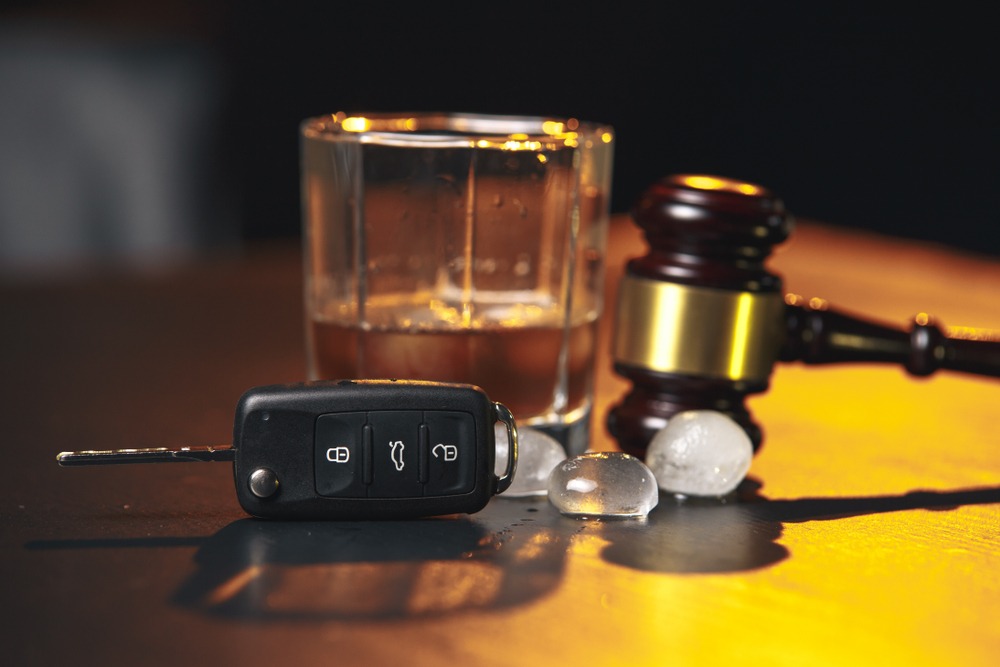If you’ve recently been charged or investigated for a Dr DUI, you’re probably overwhelmed with questions, fears, and uncertainty about what happens next. The term “Dr DUI” typically refers to a driving under the influence charge involving someone in the medical profession—often a physician, dentist, or licensed healthcare provider. These cases are unique not just because they involve a DUI, but because they put a doctor’s career, reputation, and medical license on the line.
In this detailed guide, we’ll explore what a Dr DUI is, how it differs from a typical DUI case, the legal and professional consequences that may follow, and—most importantly—how to protect your rights every step of the way. Through real-life stories, legal insights, and a conversational breakdown of complex processes, we aim to give you the clarity and confidence to move forward, whether you’re the one facing charges or helping someone else through it.

What Does “Dr DUI” Really Mean?
At first glance, Dr DUI sounds like a catchy label, but in legal and professional circles, it’s a serious matter. The term refers to DUI charges that involve licensed medical professionals, such as doctors, surgeons, chiropractors, or dentists. Because these individuals are held to higher ethical and legal standards due to their professional responsibilities, a single DUI arrest can raise questions far beyond what the average person faces.
This is more than just a traffic stop or night in jail. For doctors, a DUI charge can trigger mandatory reporting to the state medical board, hospital credentialing committees, malpractice insurers, and even federal agencies if they work with Medicare or Medicaid.
So when we talk about protecting your rights in a Dr DUI case, we’re not just talking about court dates—we’re talking about your career, your income, and your long-term ability to practice medicine.
Real-Life Story: Dr. Sanchez’s Second Chance
Dr. Maria Sanchez, a 43-year-old cardiologist in Dallas, was pulled over after attending a medical fundraiser. She had a couple of glasses of wine but didn’t feel impaired. A minor traffic violation led to a breathalyzer test, and her BAC was just over the legal limit at 0.09%.
Although it was her first offense, she was booked, spent a night in jail, and was released the next morning. But that was just the beginning. The Texas Medical Board opened an investigation, her hospital temporarily suspended her privileges, and she had to report the arrest to the National Practitioner Data Bank.
Through transparency, legal guidance, and full compliance with board requirements, Dr. Sanchez retained her license. Her experience became a wake-up call—not just for her but for colleagues who learned that Dr DUI allegations can happen to anyone, and how you respond can make all the difference.
How Is a Dr DUI Different from a Standard DUI?
From a criminal law standpoint, a Dr DUI is handled much like any other DUI charge. You’re subject to arrest, booking, arraignment, and criminal prosecution. However, there are several key differences when the person charged holds a medical license:
1. Mandatory Reporting Requirements
Most medical licensing boards require physicians to report criminal charges—especially DUI arrests or convictions—within a short timeframe. Failing to report could result in disciplinary action, even if the charge is ultimately dismissed.
2. Medical Board Scrutiny
Boards don’t just consider the legal outcome; they evaluate whether the behavior shows unprofessional conduct or an issue that could impact patient care.
3. Impact on Credentialing
Hospitals, surgical centers, and insurance panels may pause or revoke privileges if a DUI is on your record. Some require formal disclosure as part of the renewal process.
4. Licensing Renewal Complications
When it’s time to renew your license, you’ll likely be asked about arrests and convictions. Lying can lead to automatic denial or disciplinary action.
So while the criminal system might treat your DUI as a one-time mistake, the professional consequences of a Dr DUI can last much longer and cut much deeper.

Immediate Legal Steps After a Dr DUI Arrest
If you’ve been charged with a Dr DUI, what you do in the first 24 to 72 hours can have a major impact on your case—both legally and professionally. Here’s how to respond strategically:
1. Hire a DUI Attorney Experienced with Professional Licenses
Not all lawyers understand the complexities of medical licensing boards. You’ll need someone who knows both DUI defense and how to handle board disclosures and hearings.
2. Do Not Delay Mandatory Reporting
If your state medical board requires reporting an arrest (not just a conviction), don’t procrastinate. Consult your attorney on how to draft a professional, honest disclosure.
3. Preserve Your Driving Privileges
You may have only a few days to request an administrative hearing to contest your license suspension. This is separate from your criminal case and handled by the DMV.
4. Begin Documenting Your Case
Start collecting documents like court paperwork, test results, dash cam footage (if available), and any witness statements. The more organized you are, the easier your legal defense becomes.
Real-Life Story: Dr. Lin’s Tough Lesson
Dr. Stephen Lin, an emergency room doctor in Phoenix, was arrested for DUI after being stopped at a sobriety checkpoint. He assumed the matter wouldn’t impact his medical license and chose not to disclose the arrest.
Six months later, while renewing his license, the Arizona Medical Board discovered the charge and opened an investigation—not just into the DUI but into his failure to report. That oversight almost cost him his license.
Dr. Lin’s story is a cautionary tale. A Dr DUI charge is bad—but ignoring it, or trying to hide it, can be worse.
How Medical Boards Typically Handle Dr DUI Allegations
Medical boards across the U.S. have one primary mission: to protect the public. While they understand that people make mistakes, they also expect licensed professionals to hold themselves to high standards of accountability.
Here’s how most boards approach a Dr DUI:
- First-Time, Non-Aggravated DUI: Likely to result in a letter of reprimand, continuing education requirements, or monitored probation.
- Repeat or Felony DUI: May result in license suspension, mandatory rehab, or even permanent revocation.
- Failure to Report: Often punished more severely than the DUI itself. Boards view dishonesty as a breach of professional ethics.
- Substance Use Concerns: May trigger referral to a physician health program for evaluation and monitoring.
The outcome depends on how serious the offense was, whether there were injuries, and how responsibly you handle the aftermath.
Can You Lose Your Medical License Over a DUI?
Yes, but it’s not guaranteed. Most first-time Dr DUI charges—especially those without aggravating factors—do not result in license revocation. However, under certain conditions, the risk is higher:
- Felony DUI (due to injury or repeat offense)
- Refusal to comply with board investigations
- Substance use disorder that affects clinical performance
- Unprofessional conduct during or after arrest
If you show that the event was isolated, accept responsibility, and follow board directives, you can often retain your license with manageable conditions.
Real-Life Story: Dr. Patel’s Professional Recovery
Dr. Anjali Patel, an OB-GYN in California, was arrested for DUI after attending a wedding. She completed a 12-month probationary period, went through counseling, and cooperated fully with the medical board.
During that time, she continued practicing under supervision and maintained her hospital privileges. Her story shows that recovery is possible, and a Dr DUI doesn’t have to mean the end of your medical career.
How a Dr DUI Can Affect Employment and Hospital Privileges
Beyond the board, your employer may also take action after a DUI arrest or conviction. Depending on the contract and workplace policies, consequences may include:
- Temporary or permanent suspension of privileges
- Notification to credentialing committees
- Difficulty securing malpractice insurance
- Suspension from federal programs (e.g., Medicare/Medicaid billing)
Some hospitals conduct periodic background checks, so even old DUI convictions could come up during routine credentialing.
If you’re a contracted provider, the fine print in your employment agreement might include a “morals clause” or conduct provisions triggered by a DUI.

What About Reporting to the National Practitioner Data Bank?
The National Practitioner Data Bank (NPDB) is a federal database that tracks certain adverse actions against healthcare professionals. Not all Dr DUI arrests end up reported here, but some do—especially if:
- The board takes disciplinary action
- Hospital privileges are suspended
- The conviction leads to professional sanctions
Being listed in the NPDB isn’t automatically career-ending, but it does follow you when applying for licenses, jobs, or hospital affiliations.
Steps to Protect Your Medical License During a Dr DUI Case
If you want to continue practicing medicine after a Dr DUI charge, here are proactive steps to minimize the damage:
1. Report Honestly and Promptly
Silence or concealment is viewed as unethical. Transparent reporting builds trust.
2. Enroll in Voluntary Counseling or Monitoring
Showing initiative can make a huge difference in board outcomes.
3. Collect Letters of Support
Gather character references from supervisors, colleagues, or patients if appropriate.
4. Complete All Court Orders Immediately
Pay fines, attend courses, and complete community service without delay.
5. Consult a Licensing Defense Attorney
Not all DUI lawyers understand board processes. An attorney who knows both sides can coordinate your defense.

Final Thoughts: Protecting Your Rights in a Dr DUI Case
So, can a doctor survive a Dr DUI? Yes—but only if you approach it head-on, take accountability, and respect the legal and ethical processes that follow.
Whether you’re newly charged or just preparing to disclose a past incident, the key is not to panic—but to act. With the right legal and licensing guidance, a single mistake doesn’t have to cost you your livelihood, reputation, or future.


